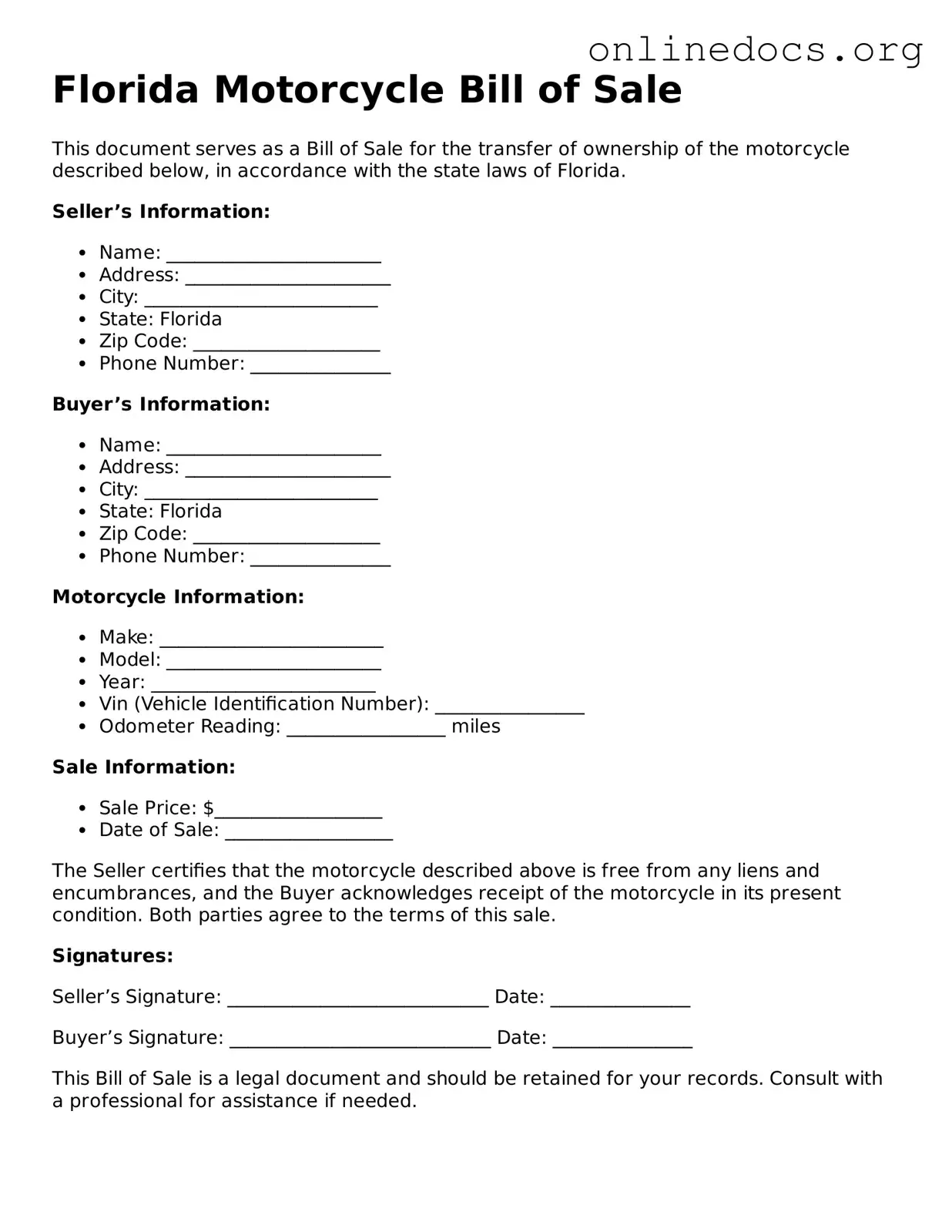The Florida Motorcycle Bill of Sale form shares similarities with the Vehicle Bill of Sale. Both documents serve as proof of transfer of ownership from one party to another. They detail essential information such as the buyer's and seller's names, addresses, and contact information. Additionally, they include descriptions of the vehicle, including make, model, year, and Vehicle Identification Number (VIN). This ensures clarity in the transaction, protecting both parties by providing a record of the sale that can be referenced in case of disputes or future registration needs.
Another document that closely resembles the Florida Motorcycle Bill of Sale is the Boat Bill of Sale. Like the motorcycle version, the Boat Bill of Sale records the transfer of ownership for watercraft. It includes similar information about the buyer and seller, along with specific details about the boat, such as its hull identification number, make, model, and year. This document is crucial for both legal protection and for registering the boat with the appropriate authorities, ensuring that the new owner can enjoy their purchase without any legal complications.
In real estate transactions, a Quitclaim Deed serves as an essential document for the transfer of property interest, particularly within familial contexts, as it does not warrant title, ensuring both parties understand their positions. For comprehensive information on Quitclaim Deed forms and their implications, you can refer to legalformspdf.com.
The Florida Title Application is also akin to the Motorcycle Bill of Sale, as both documents are integral to the vehicle registration process. While the Bill of Sale serves as proof of ownership transfer, the Title Application is used to officially register the vehicle in the new owner's name. This application requires details about the motorcycle, similar to those found in the Bill of Sale, and must be submitted to the Department of Highway Safety and Motor Vehicles. Together, these documents ensure a smooth transition of ownership and compliance with state regulations.
Lastly, the Odometer Disclosure Statement is another document that parallels the Florida Motorcycle Bill of Sale. This statement is often included as part of the sale process, particularly for used vehicles. It requires the seller to disclose the motorcycle's odometer reading at the time of sale, providing transparency regarding the vehicle's mileage. This is crucial for the buyer, as it helps prevent fraud and ensures that they are aware of the motorcycle's condition and history. Like the Bill of Sale, this document is vital for protecting the interests of both parties in the transaction.
